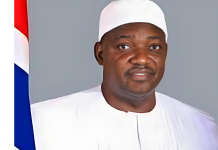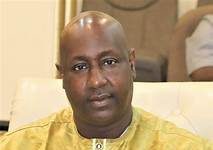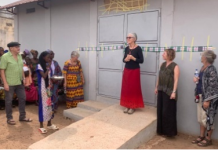Where the facts are evident hearsay and rumours are impermissible. Law makers should read and understand their bill. Those who also wish to make comments should gather facts before stating opinions.
Evidence based opinions facilitate the holding of constructive national conversation of a subject matter that is of national concern or interest. There are comments by National Assembly members and others indicating that the bill is introduced for Ex-President Jammeh to benefit or not to benefit.
The substance of the Bill and its implication are yet to be fully explained to the Gambian population. This is why Foroyaa has taken full responsibility to clarify matters in order to put an end to the wrangling.
First and foremost, a National Assembly member or a member of the public should always question whether the substance of a bill is new or is meant to amend or repeal an existing Act. If the bill intends to amend or repeal an existing Act, then one must compare the clauses and Schedule of the Bill with the provisions and Schedule of the Act it intends to amend or repeal.
In that regard, clause 18 of the Bill that was introduced categorically states that, The Former Presidents (Offices, Allowances and other Benefits) Act is repealed which confirms that there is already an existing Act providing for benefits of former presidents of The Gambia since 2006.
Former President Jawara has benefitted from this Act up to his passing away. The only other person who could have benefitted from this is Former President Jammeh who ceased to hold office on 19th January 2017.
We are not aware that from 20th January 2017 to the 2nd November 2023, when the Bill was introduced that he had either claimed or received his benefits.
The Bill which is introduced should therefore be considered on the basis of its merits. This could only be done by comparing what was offered to a former president by the Act and what the Bill sought to replace.
It is now necessary to look at the content of the Act and weigh the benefits against what the Bill aims to accord to a former president. The benefits could be divided into pension, gratuity, office, residence, medical care, holiday and entitlement to spouse after the demise of a former president.
In terms of the Act, the monthly allowance of a former president is fixed at D50,000 which is D600,000 per annum. The Bill considers this sum to be inadequate. The government Bill therefore proposes that a former president should be paid a monthly pension equal to the monthly salary of the serving president. The National Assembly members who took part in the debate considered that a former president should receive 80 per cent of what the serving president is receiving. This is how matters stand regarding monthly pay.
If the debate was to be constructive, Gambians must remember the convergence principle of the Ecowas Protocol on Democracy and Good Governance.
Chapter 1 deals with “Constitutional Convergence Principles”. Article 1 reads: The following shall be declared as constitutional principles shared by all Member States: ….. (p) All former Heads of State shall enjoy a special status including freedom of movement. They shall enjoy special benefits compatible to their status as former Heads of State.”
What is required is to weigh cost of living and anticipate the living standard a former president should have in order to encourage those who occupy the office to be honest when they serve and not to over stay for fear of life after the presidency. Whatever they determine should be reasonable and justifiable.
Foroyaa therefore poses the question: What is reasonable and justifiable? These are the questions.
Secondly, the Act did not provide any gratuity for a former president. The Bill however seeks to provide gratuity equivalent to the salary of a former president at the time of leaving office multiplied by six.
Thirdly, the Act provides for the state to maintain an office with a maximum staff of four for a former president. In short, a former president will continue to perform public duty.
The Bill also seeks to maintain an office of a former president and in this respect, the staff are a minimum of four, unlike the Act which requires a maximum of four.
Fourthly, the Act provided for the office of a former president to be provided with three vehicles to be fuelled and maintained by the state. The Bill also makes provision for three transports, but qualifies them to be new and replaceable every five years.
Fifthly, the Act did not mention residence, but the Bill requires the state to maintain either the house provided for a former president or his or her residence.
The Act and the Bill both make provision for annual vacation of one month for former president and spouse with free tickets and per diem. Both Act and Bill also make provision for medical care of former president including treatment abroad.
The Act makes no provision for payment of allowance to a surviving spouse for life when a former president passes away. The Bill on the other hand stipulates the payment of monthly allowance equivalent to 25% of the salary of a serving president.
This is how matters stand.
If presidents have two terms a country will have ten presidents in a century. Now we have a situation in the Gambia where a president served for 30 years and another for 22 years. How are we to put an end to this should be our primary preoccupation? We should come up with a realistic and justifiable package where former presidents continue to serve after leaving the presidency so that no one can stay in office for long. This is the task that we must address as a people, leaving all partisan or sectionalist feelings aside.



















